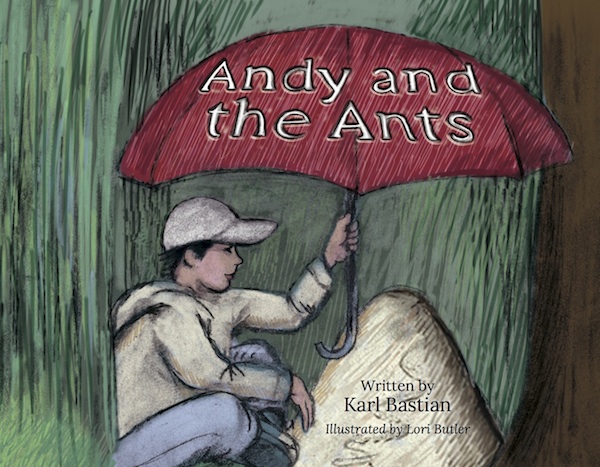I hope that this blog post will generate some honest, polite and important dialogue. I am not trying to stir anything up – but sincerely want to get your feedback on a question I got.

Several months ago, I received the following question from a listener to my podcast:
Good morning Karl,
I am… (name and church removed)
I listened to your podcast, and absolutely loved it! Great job, keep up the great work that you’re doing for all of the professionals in the kids ministry world.
I did have a question, however, that I would love to see you address. The question is, “How do you encourage and promote diversity in your kids ministry?”
We are living in a day and age, that unfortunately, kids and families are exposed to the rise of division because of race and ethnic background.
How do you promote unity and diversity in the mist of these unfortunate events?
This is a fantastic question – but I must admit, I had to really wrestle with it because the premise of the question bothers me, that we live in a day and age when, yes, there are a lot of events that promote conflict between races. (Our recent presidential race magnified these events.)
Here is how I answered, and I’d appreciate your honest (and polite) feedback. You do not need to agree with me! But I would like to know what you think:
Dear (name removed),
Thank you for your email and words of encouragement – I did get your note, and it has sat idle a bit as I have been trying to thoughtfully and prayerfully consider your great question.
I struggle with it because I think our culture has made a huge mistake in trying to “promote diversity” – I think this is harmful, and let me explain what I mean. When we promote diversity we are focusing on what makes us different – and actually encourages people to look at others according to what makes them different than us, rather than seeing them as God sees them. When I see bumper stickers that say, “Our Strength is in our Diversity,” I cringe – because I don’t believe our strength is in our diversity – I would suggestion that strength comes rather from Unity.
So I’m not sure I can even answer, “How do you promote and encourage diversity in your ministry?,” because I don’t want to teach kids to see others as different. In my own ministry, I would want to instead focus on what makes us the same – God created all of us, different races, different abilities, different cultural or economic backgrounds, different personalities and dreams – but he made us ALL, loves us ALL, and sent Jesus to die for us ALL.
I remember when my little sister, at around age 5 or 6, was playing with an African America girl in our neighborhood in Chicagoland. A well-meaning adult said to her, “That is so nice that you are playing so nicely with that black girl.” My sister looked confused and responded by saying, “Oh, I didn’t even notice that.” This well-meaning adult was pointing out that skin color made the other girl different and commended my sister for playing nice with her, as though the normal response would be to discriminate on skin color. My sister didn’t need to be taught diversity – she was living out unity! Race was irrelevant to her. She saw the other girl only as another little girl to play with, but an adult saw kids of different races who ought to “play nice” together. But they already were!
I fear we do a disservice to children by emphasizing differences – and then telling them to ignore the differences that we pointed out. It’s a bit like the old joke, “Don’t imagine a pink elephant.” Immediately you do! So to say, “Don’t look at that other person as ______.” You have just caused them to do the very thing you are wanting them not to do!
I hope this makes sense, it is true that our differences are valuable, that is why the Bible talks about the Body of Christ and how each part has an important role – but we are different from each other in countless ways beyond race, but the diversity emphasis in our culture today I believe is actually having the opposite effect as intended as people are labeled and put into groups. Even politicians are now encouraged to focus on various groups instead of simply pursuing what is best for everyone. Don’t we all want the same things? Love? Security? Friendship? Freedom and Liberty? But we have pushed everyone into separate groups and then said, “now get along.” They would get along better without being separated and divided in the first place.
So all that to say, I don’t want to promote diversity in my children’s ministry – I want to promote God’s love for everyone and teach, focus on, and celebrate the unity that we have in Christ.
Sincerely,
Karl Bastian
I look forward to your feedback – am I completely off base? Is this the thoughts of a Middle-class, Midwest, Middle-aged White Male? Or can I just be Karl without the labels?
UP-DATE since blowing up Facebook in several groups. Overall, folks have seemed to agree – some however have taken issue with me (and that is fine) but then go on to say nothing I disagree with, so I tend to think they misunderstood or took what I said to a further conclusion which I am not proposing or suggesting. I want to be clear and add a note even though I can’t reprint nor represent all of the MANY comments this spurred.
I am NOT saying that I don’t want diversity! Far from it. We ought to foster it, celebrate it, embrace it, teach it and welcome it! I am merely pointing out that if we don’t address the issue wisely, our sincere efforts can actually contribute to the problem rather than address it.
I am thankful to everyone who has chimed in! I wanted to get a conversation going, and boy-oh-boy did I! (Should I say girl-oh-girl too, just to be inclusive?)
So many have posted good feedback and even great practical examples and stories of why this is so important, and everyone has been civil and respectful, which is the first step to the unity I spoke of.
If you are interested you can read the comments and my responses here, here and here as well as below in the comments on this blog. It’s good reading for those who want to dig a little deeper into this important topic.
Keep it coming!
ANOTHER UP-DATE for those following this.
My initial e-mailer replied with some clarification on what he was seeking:
Hey Karl,
Thanks so much for reaching back out to me. Your words of encouragement and your phenomenal wisdom is very much appreciated!! What I was trying to ask is how do we make children – who come from different backgrounds, ethnicities, races, and cultures feel more welcome? I hope that makes better sense.
Essentially, our challenge now is that our children’s ministry doesn’t match the social, economic and racial diversity of our city. And my hope and prayer is to get it to do so. However, being in children’s ministry, obviously, we can only rely on the parents who bring their children. But unfortunately, we are not seeing a growth in diversity our children’s ministry (with both staff and kids) but our main service is.
Thanks
My Response:
I think part of the struggle is breaking the barrier initially – once you are diverse, diversity will naturally grow… it is that initial family that may feel they don’t fit what they see who is so important, its like building a giant snow ball, you have to start small, but once it grows and starts rolling it gets easier and easier.
A few questions (you don’t have to answer, just for reflection, though you are welcome to)
1) If the main service is getting more diverse, are their children in there that need to be invited to the kids area?
2) Are you doing any targeted outreach to areas that are more diverse? Park outreach? Tutoring ministry? After school programing? People come if real needs are being met.
3) It starts with us. How are kids that don’t fit the present ‘look’ of the ministry greeted when they visit? Do we take the extra step to make sure they are greeted, celebrated and invited back? Post card in the mail, phone call to parents, “So glad your child visited, we hope to see them again next week!”
It’s much like starting a special needs ministry, you have to first take great care of the special needs kids you already have, before hoping to attract more families who have children with special needs.
But in the end, our goal is to minister to the kids God sends us. There is no need to feel guilty if your kids ministry isn’t diverse… your job is is to love, reach and teach those God brings you – but wanting to better reach the community you are in is of course, ideal.
It may mean getting outside the walls of the church and going to where they are, and that may mean a different focus in programming, funding and how your time is spent.
I’ll pray with you!
Here is a good link a fellow posted to one of the Facebook discussions.
I have appreciated the response to this discussion, and the many emails and messages I’ve gotten privately. We need to be bold and discuss these tricky topics, because EVERYONE is important and we need to reach everyone we can. “Whosoever will….” does indeed mean WHO SO EVER! -Karl









Well said, Karl! Much better to focus on what unifies us in Christ than look for differences to define us.
Hi Karl,
I love the gentle and honest way that you treated the question, and I agree. Why expose children to division when they have no clue on the what or why of it. It’s like teaching the gospel in reverse, and that is not what we are called to do.
Thanks for the example,
Darinda
I would agree with your basic points. I wrote something similar asking the question if the church was fostering hatred. (http://www.commanderbill.net/does-the-church-help-foster-hatred/)
Unity is key and should be our focus, not what separates “us” from “them”. We need to focus on the noun, not the adjective.
On the surface I agree. However, you seem to approach it from a perspective that assumes the person asking the question was going to go to her kids and tell them to “be sure to invite all your black friends.” Certainly that would be a bad thing to do. But, to ask “how do ensure that our ministry is it excluding any people because of their race, or other things” is a very healthy question to ask.
I would agree that focusing on diversity for the sake of making sure you have enough of each race in your church is wrong. That focuses on what makes us different. But, seeking to reach ALL the people in your city, even those thatnlooks different than you, is always a good thing.
If a kid grows up in a church that never has any people that look different then him are is he going to feel the unity within the body that you speak? Maybe, maybe not. But, if he grew up in a church that worked hard to reach as many people as possible, regardless of their differences then he will grow up SEEING the unity that you speak of.
There are many things that we do in ministry that we do not communicate directly to the kids. We pray for more salvations, but we don’t tell kids that. We hope for more baptisms, but we don’t tell kids that. Seeking to reach the people in our city, regardless of their race is another one of those things that we think about, but do talk with the kids about.
Absolutely agree! Great point on goals we have for the sake of the Kingdom, but don’t always explain that to kids so it can be genuine and not forced.
Thanks
I think it is extremely important for Christians of all ages to be thinking about this and figuring out how to implement the ministry of reconciliation into our churches–for all ages. I agree that pointing out differences for the sake pointing out how we’re different is not all that helpful. The story you shared about the kids on the playground is tricky, because the comment that was made was laced with the assumption that white and black children do not normally play together. That is not the right approach.
But I think there is more to it than that. We need to learn how to celebrate our differences, not ignore them. The problem with a “color blind” lens, or refusing to see differences, is that we default to whatever is “normal” or “dominant.” So if you are in a predominantly white church, then your kids ministry will automatically developed around that culture and worldview. When we start to really see and celebrate our differences, we can develop programs and ministries that not only reflect our diverse world, but also resonate and speak to each person in our community.
I am part of a multicultural, multiethnic church and we are constantly on the lookout for ways that we are defaulting to the majority culture, at the expense of those in the minority. SO we intentionally sing songs in different languages and worship styles. We offer prayers of lament when current events cause various members of our community to grieve or be afraid. We offer spaces to process and pray together about things like the election or police shootings of unarmed black men, or how Asian culture and Christian faith intersect, etc. For the kids, I look for children’s bibles that depict Jesus and other Bible characters with the brown, middle eastern skin they would have had in real life! I am aware that not all kids in our kids ministry celebrate Thanksgiving exactly the same or have the same family structures or same parenting styles at home.
We can’t ignore “diversity.” The kingdom of God is an amazing kaleidoscope of differences… the body of Christ is made up of many parts, and none are more important than the other. But a foot is still a foot and an eye is still an eye. We need each other in our differences and that is worth celebrating!
I hope you will rethink your response to the pastor inquiring about this, and start praying about how you can help bridge the divides and celebrate the differences that do exist in our culture. A good place to start is Christena Cleveland’s book, “Disunity in Christ” or anything by Curtiss Paul DeYoung.
Thanks for posting about this! Blessings, Naomi
Naomi, great points. I agree wholeheartedly. I am not at all suggesting that we “ignore diversity” – so you may have read that into my note. We ought to celebrate it! It is the Kingdom of God on display in our churches. I’ve always had a diverse ministry, from the kids, to the images, to the puppets used, etc. – but it is more about our actions than our words. We need to BE a diverse ministry where everyone not only is welcome in words, but in actions so that they don’t just hear it, but FEEL genuinely welcomed. I certainly hope you didn’t read that I don’t want or desire diversity, far from it! But encouraging and promoting it needs to be done in a way that is wise, and you site many great examples of how we can do that. Thanks for contributing to the conversation. There has been some great conversations on Facebook as well. Thanks.
It seemed like a weird question to me at first. I don’t know why we would want to promote this when we are are called ” Children of God”.. Yes there are times in the Bible where different cultures are mentioned but everyone is invited into a relationship with God.
I like your story about your sister because I had a sorta similar situation. My Dad was in the Air Force and he use to tell us all the time – don’t wait to find the “perfect” friend because as soon as you do – one of you will be transferred away. Everyone should be my friend. My Dad really instilled this idea in our heads and also in his life. He was an Officer but had more friends in the service that were not and he did receive flack at times. But he didn’t let it bother me.
When we were transferred to Illinois from Panama ( no culture shock here); I had mentioned that I had some friends that were black and the other kids couldn’t believe it. I was in Junior High at the time and lost a couple of “friends” because I didn’t believe that I was wrong.
And this is way before I became a Christian.
So in closing – you replied in a way that is gentle and makes a person think at the same time.
Thanks for your input! You certainly have lived diversity without needing to draw attention to it.
I think your spot on. Racism and the like are behaviors that are taught. I was gonna say keep jesus in the front and get the kids in service to each other.
THANKS! Appreciate the encouragement. Some are misunderstanding and thinking I am against diversity, and nothing could be further from the truth. I celebrate it! Amen to keeping Jesus in the front! He welcomes ALL as should we!
Not all churches have natural diversity within so it may be difficult to address this. I think that as leaders it is important to consider whether we are being inclusive of others without necessarily pointing people out as being different. In our church we do a few things:
1) We use a curriculum with a video component which is taught by a man who is black and a woman who looks oriental. The kids are receiving spiritual instruction from these people and as a result look up to them as respectable figures. They do not refer to the narrators by their race, but simply as a man and a woman.
2) We do not point out color, class or other differences among our own group of kids. Sometimes kids will ask a question about a noticeable difference of someone in class (color, behavior or disability) and a teacher will carefully respond without shaming, but we do not point out the things that make us different unless it is initiated by the individual who wants to share their own story. In one class we have a boy who was adopted from another country with a prosthetic leg, an adopted boy with a severe cleft palate, several older kids and one young lady who are mentally disabled and a number of others. Our kids get annoyed by the things that should annoy them (he won’t stop poking me!) but do not seem to notice at all the obvious differences in outward appearance.
3) We include people in our classes who have disabilities and train our kids to adapt, care for and help them whenever possible. When not everyone looks and acts the same, kids begin to look past the surface and accept the things that make us each unique.
4) Mission education is a great place to introduce kids to diversity of culture as opposed to diversity of individuals. Teaching about different cultures and ways of life without presenting our culture as being superior helps kids understand and appreciate the diverse ways that peoples all over the world live in community. For example, “In the town of ____________ people spend their day this way. This is how they care for each other, worship, eat, etc.” When kids have an opportunity to see other ways of living, they may develop hearts of compassion towards others who are needy without devaluing them.
5) We use “people first” language and avoid labeling. Rather than saying “the little black boy” or “the tall white girl” we would say “Kim is tall with long brown hair” or “Kyle is short with curly black hair and dimples” or “Cheryl loves to dance and praise Jesus but she can’t walk on her own. Can we help her dance in her chair?”
I am learning by trial and error every day how to best model and teach the kids and staff I work with to love each other as the family of God
THANK YOU, those are some excellent examples of how we can embrace and celebrate diversity! Thanks for taking the time to post.